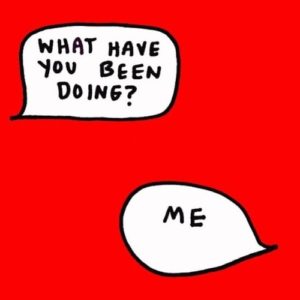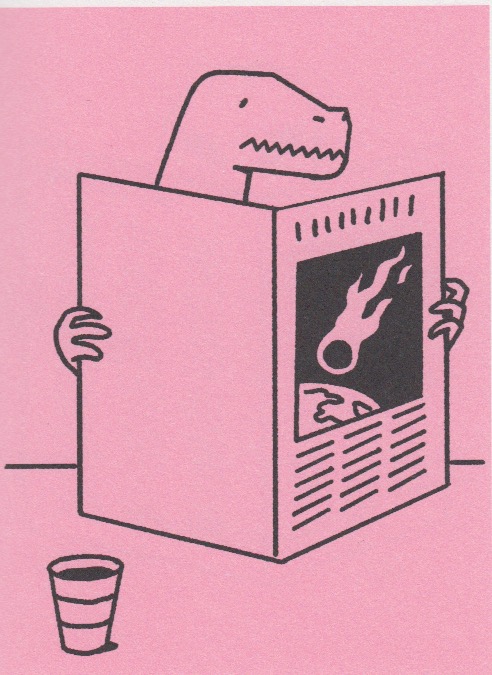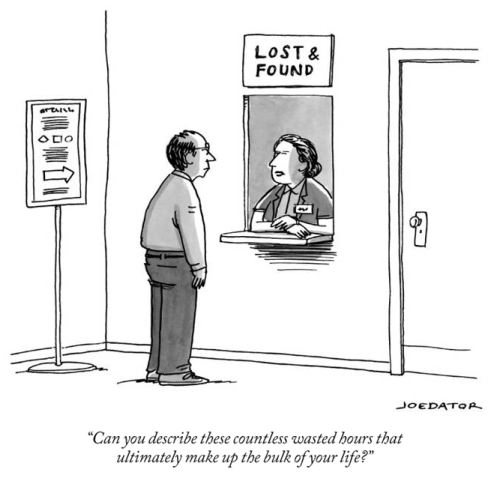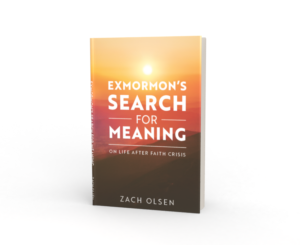
Judging by most people’s behavior, I would say one of the the biggest fears we have in our culture is of being mediocre. People don’t just jog, they become marathoners; they don’t just exercise but go to Crossfit in order to compete at being the best at it. Workaholism is a badge of honor, reversing centuries where it was the poor who worked while the rich rested. And once adults feel like they’ve peaked, they can begin building their competitive kids. Being average is being an uninteresting slacker who won’t commit 10,000 hours of practice to something.
Is greatness everything it purports to be? I’m skeptical. Or maybe I’m trying to justify my own sense of inferiority. But when I look at what makes greatness so tempting, I see some holes. First off, here are the reasons I can come up with as to why greatness is so great:
- The belief that the activity we are engaging in could be more enjoyable if we were the best at it — winning feels better than losing.
- In our search for meaning, our current state isn’t cutting it so we reason that it must be because we haven’t reached some higher level where meaning occurs. If we were the greatest at something, that uniqueness would grant a new sense of meaning only endowed on those who are the greatest — we can earn happiness by earning greatness.
- We long for status. Greatness = popularity = influence = money = happiness.
- For some reason we feel like we don’t belong and greatness would prove to everyone that we are worthy.
Greatness, in essence, is a study of ourselves compared to others. So really, greatness is a perception more than it is a reality. That perception can be manipulated by who we compare ourselves to and what metric we use to compare with.
Malcolm Gladwell has explained that in elite universities many students seek greatness by competing with others to be accepted only to feel like they lose their greatness once they get in.
“When you are in the 99th percentile and you’re up against someone in the 99.99th percentile, you feel stupid.Then you go back to the real world, and you’re smart again. So why would you artificially put yourself in a situation where you feel so dumb that you stop doing the very thing that you went to school to do?”
Gladwell goes on to explain his experience working for a mediocre student newspaper:
“I had a way better experience than I would have had if I was at the highly competitive newspaper. I’ve never forgotten that. By virtue of being this lame, forgotten thing, I got to do more fun stuff and have a much better time than I would have at the proper newspaper.”
The satisfaction of greatness is solely inside your mind and can be achieved by manipulating the input of who you compare yourself with just as much as reaching a certain level of achievement.
Winning is something that is not completely within your control. So to use an external outcome outside of your control as the metric for success is setting yourself up for greater disappointment. Better to use an internal metric to measure yourself against that is in your control — like doing your best. The decreased anxiety of using an internal goal will increase enjoyment during the event and satisfaction afterwards.
Releasing yourself from the goal of greatness and reveling in the mediocrity of multiple interests might just be the thing that actually leads to greatness.
Steven Johnson explains in, “Where Good Ideas Come From: The Natural History Of Innovation,” Innovators like Benjamin Franklin and Charles Darwin favored working on multiple projects simultaneously, in a kind of slow multitasking mode. One project would take center stage for days at a time, but linger at the back of the mind afterwards too, so connections between projects could be drawn. Breakthrough ideas don’t come out of the blue. They are found at the intersection of all the other ideas smashing into each other in your head.
“Legendary innovators like Franklin, Snow, and Darwin all possess some common intellectual qualities—a certain quickness of mind, unbounded curiosity—but they also share one other defining attribute. They have a lot of hobbies.”
I have a hard time watching those talent shows on TV like American Idol. The contestants are demonstrably talented but singing songs written by other people is ultimately not what we want. One focused on greatness in music or any other field might become an expert, but greatness isn’t expertise, it’s originality and insight.
Adam Grant says,
“Evidence shows that creative contributions depend on the breadth, not just depth, of our knowledge and experience. In fashion, the most original collections come from directors who spend the most time working abroad. In science, winning a Nobel Prize is less about being a single-minded genius and more about being interested in many things. Relative to typical scientists, Nobel Prize winners are 22 times more likely to perform as actors, dancers or magicians; 12 times more likely to write poetry, plays or novels; seven times more likely to dabble in arts and crafts; and twice as likely to play an instrument or compose music. No one is forcing these luminary scientists to get involved in artistic hobbies. It’s a reflection of their curiosity. And sometimes, that curiosity leads them to flashes of insight.”
In this context, striving for greatness can be seen as just a competition of who can be the best at conforming. Some entity sets the rules and then it’s a test to see who is the best at subjecting themselves to be the best at those rules. Being the best at meeting some requirements really isn’t greatness despite what the people who made the rules say — of course they’re going to say that’s what greatness is, it puts them in a position of greatness.
“Your potential, the absolute best you’re capable of—that’s the metric to measure yourself against. Your standards are. Winning is not enough. People can get lucky and win. People can be assholes and win. Anyone can win. But not everyone is the best possible version of themselves.” ― Ryan Holiday, The Ego Is the Enemy
The term “hedonic treadmill” is what social scientists call the tendency of humans to quickly return to a relatively stable level of happiness despite major positive or negative events or life changes. In other words, the happiness that is awarded those who achieve greatness is fleeting.
There are many people who reach a level of greatness only to feel empty and vapid. Jim Carrey is quoted saying,
“I think everybody should get rich and famous and do everything they ever dreamed of so they can see that it’s not the answer.”
So why strive for greatness if the reward is so unfulfilling? If we’re not content with our current status then there’s a good chance that no level of greatness will make us feel any better. Or to say it another way, we stand just as good a chance of being content with ourselves in our current state of mediocrity than in being great — actually we have a greater chance since it’s a place much more accessible; we can reach it within our own minds.
That isn’t to say it doesn’t take effort to be happy in our current state. Getting over our sense of inferiority is not easy. Our default setting is to avoid pain and seek pleasure, often to the detriment of the present moment.
Ancient eastern Buddhism and western philosophy both concern themselves with practices and mindsets that teach us how to let go of the past and future and live in the present to achieve a feeling of true greatness — being ourselves. To hope for an increase in pleasure from a future of greatness is to be ignorant of pleasure’s very nature. We can achieve stable pleasure only if we know how to limit ourselves to what we can obtain within the present moment, without letting ourselves be swept along by the unreasonable limitless needs of our desires.
This isn’t another way of convincing ourselves to be okay with settling. The present is everything. Seneca said,
“He who enjoys the present without depending on what does not exist…he is without hope and without desire; he does not hurl himself toward an uncertain goal, for he is satisfied with what he has. Nor is he satisfied with little, for what he posses is the universe…like God he says, “All this belongs to me.”
The present isn’t to be suffered for a future eternal life. It is eternal life.
“Death is not an event of life. It is not experienced. If by eternity we mean not an infinite temporal duration but timelessness, then whoever lives in the present lives eternally.” -Ludwig Wittgenstein
There are tens of millions of people who are better at everything that I do. But I don’t have to compare myself with them, because I’m in a different competition. For a life to be valuable, or meaningful, it needn’t be unique. Believing that specialness is tied to meaning leads me to unnecessarily see my life as insufficiently meaningful and to miss ways of enhancing the meaning that is available. Loving the process instead of the outcome is the secret to motivation and daily enjoyment of the present.
Reaching an arbitrary level of greatness does not prove that we are great. It’s a false label that inspires our egos to think we’re superior to others. We are all always going to be imperfect and “greatness” can only cover it up temporarily.
“Imperfection is not our personal problem – it is a natural part of existing.” – Tara Brach, Radical Acceptance: Embracing Your Life With the Heart of a Buddha
I’m not a problem that needs to be solved. I’m neither mediocre nor great. I choose to not affirm myself at all costs against the order of the world and instead delight in the splendor of pure existence.











